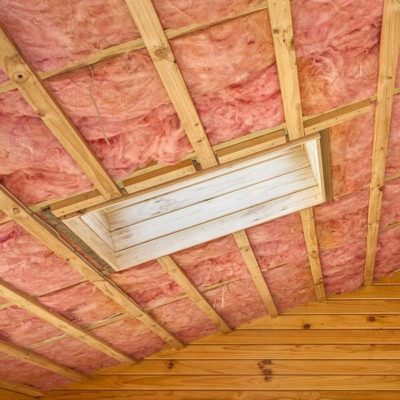Is your home well-insulated? If not, it could have a negative impact on your home’s heating, ventilation and cooling (HVAC) system.
With insufficient insulation, thermal energy will escape your home. As the heated or cooled air exits your home, your HVAC system must work overtime, resulting in a lower level of performance.
Below, you’ll learn more about the role insulation plays in HVAC performance.
What Is Insulation?
Insulation is material that’s installed in a home or building to minimize the loss of thermal energy.
Some types of insulation are fibrous, such as fiberglass, cellulose, rock and slag wool. Other types of insulation are harder and less porous.
Regardless, they are all designed to trap thermal energy inside your home.
Insulation and HVAC Performance: What You Should Know
The amount, as well as type, of insulation installed in your home will affect the performance of your home’s HVAC system.
When you turn on the air conditioner or heater in your home, the HVAC system will produce thermal energy. Thermal energy is simply heated or cooled air.
Insulation helps to trap the thermal energy inside your home, which in turn reduces the burden placed on the HVAC system.
If your home has an insufficient amount of insulation, or if it has the wrong type of insulation, the HVAC system may fail to achieve the desired temperature for which you programmed it.
The heated or cooled air will exit your home through the path of least resistance, such as an area of missing or inadequate insulation.
Inspect Your Home’s Insulation
To maximize the performance of your home’s HVAC system, you should inspect the insulation.
All interior and exterior walls should have insulation to minimize the loss of thermal energy. Other places in your home where insulation is recommended include the ceilings, basement or crawlspace and floors.
Check the R-Value
When shopping for insulation to install in your home, you should check the R-value.
In the United States, all residential and commercial insulation must be labeled with an accurate R-value as per the Federal Trade Commission’s (FTC’s) guidelines.
This universal metric reflects an insulation product’s ability to resist heat transfer. The higher the R-value, the more effective the insulation product is at trapping thermal energy inside your home.
The performance of your home’s HVAC system is heavily dependent upon insulation.
Insulation restricts the transfer of thermal energy so that the HVAC system doesn’t have to run as long to achieve a comfortable indoor temperature.
If you are experiencing a problem with your air conditioning or heating call us at 512-336-1431 to schedule an appointment. We’ll be glad to come out and take a look at the issue.
1431-183 A/C & Heating proudly serves Round Rock, Georgetown, Cedar Park, Pflugerville, Leander, Liberty Hill, and North Austin.

